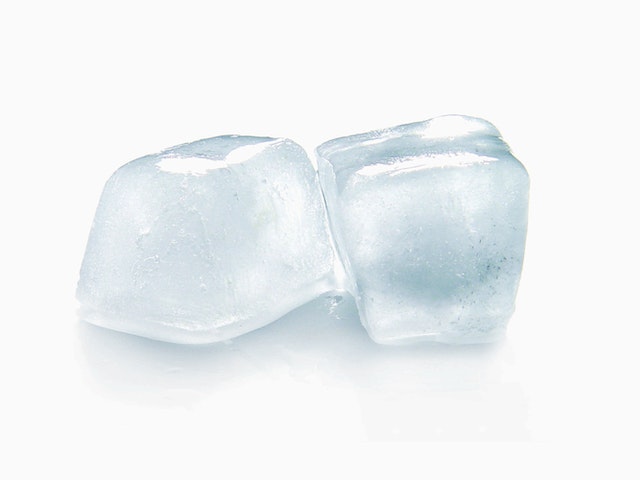The food industry demands various accessories and equipment to enhance quality and productivity. So, the demand for a commercial ice machine is always there. May it be a hotel, restaurant, educational setting, or hospital care facility, they need these ice dispensing machines to make their life easier. However, knowing whether an ice-maker is suitable for you is the bigger challenge because there are certain aspects that you must know. Luckily, this article will discuss them all to make your task simpler.
Essential Facts about Commercial Ice-Making Machines
There are Multiple Types of Commercial Ice Machines There
Commercial ice makers come in various types, each designed for different degrees of usage and space requirements. Therefore, people interested in investing in them must know which ice-making machines will be ideal for their job. If you look in the market, you will find modular ice machines, Countertop ice machines, and under-counter ice machines.
- Modular ice machines are the workhorses of the industry, ideal for high-volume ice production. These machines can produce vast quantities of ice and can be combined with ice bins or ice dispensers to meet the demands of large establishments such as hotels, hospitals, or busy restaurants.
- If you have smaller establishments or work in a limited space, under-counter ice machines are a practical choice. These compact units can fit conveniently under countertops or bar areas, saving valuable floor space. They are perfect for bars, cafes, and restaurants that require a steady supply of ice without overwhelming capacity.
- Countertop ice makers, on the other hand, offer the utmost convenience. Designed for smaller-scale operations or self-serve stations, these machines provide a quick and reliable source of ice, perfect for coffee shops, small cafes, and office break rooms.
Ice Production Capacity Matters
Determining your establishment’s ideal ice production capacity is pivotal in selecting the right commercial ice-making machine. To estimate your ice consumption needs accurately, consider factors such as the number of customers you serve, the type of beverages you offer, and the peak hours of operation. For instance, a busy restaurant with a bustling bar may require a higher ice production capacity than a cozy coffee shop. It’s also essential to plan for the future, considering potential growth in customer numbers and seasonal fluctuations in demand. Opting for a machine with a slightly higher capacity than your average daily demand ensures a smooth operation even during busy times, preventing ice shortages and customer dissatisfaction.
Commercial Ice Machines Can Produce Various Ice Types
Commercial ice-making machines, true to their innovative nature, offer a variety of ice types to cater to the diverse needs of the food industry. These ice varieties transform the way beverages are served, and perishables are preserved. For establishments seeking versatility, traditional ice cubes take the lead, finding their place in restaurants, hotels, and food service establishments where slow melting and efficient cooling are paramount. In the healthcare sector, nugget ice is the preferred choice for patient hydration, boasting a soft and chewable texture.
The nugget ice variety has also garnered popularity in restaurants and fast-food chains, adding a delightful crunch to specialty drinks. Flake Ice emerges as the frontrunner for businesses aiming to elevate their seafood presentations, gently cradling perishable items in supermarket displays and fish markets, preserving their freshness and visual appeal. As establishments tailor their ice-making choices to match their industry-specific requirements, these ice types play a pivotal role in enhancing customer experiences and ensuring the utmost satisfaction with every chilled sip or bite.
Your Ice-Maker Will Require Regular Maintenance
Once you have invested in a commercial ice machine, you must maintain it well to ensure it runs optimally and dispenses a better quality of ice. Neglecting these tasks can negatively impact efficiency, boost energy consumption, and give rise to potential health hazards. You must follow the manufacturer’s guidelines and plan a regular maintenance schedule to clean your ice maker. This may include cleaning the evaporator and condenser coils, inspecting and replacing water filters, and sanitizing ice bins or storage areas. It’s also essential to train your staff on proper cleaning techniques to ensure hygienic ice production and longevity of the machine.
Smart Choices When Investing in a Commercial Ice Machine
Lastly, when you are investing in a commercial ice-making machine, you must steer clear of common pitfalls that could lead to dissatisfaction or higher costs down the road. It would be best to refrain from making impulsive decisions solely based on price, as a lower-priced machine might not deliver the desired performance or durability.
Reviewing testimonials and reviews can help you get a better picture and understand what consumers think about certain ice-making machines for commercial purposes. Doing that can help you gauge the machine’s performance and customer satisfaction. Additionally, be wary of buying a machine with excessive features you may never use. It will be better to opt for functionalities that align with your specific needs, ensuring efficient ice production and cost-effectiveness.
Conclusion
Understanding the essential aspects of commercial ice machines can immensely simplify the process of selecting the perfect machine for your establishment. Whether you’re running a bustling restaurant, a cozy café, or a healthcare facility, knowing the intricacies of commercial ice machines empowers you to enhance customer experiences, improve operational efficiency, and ensure a steady supply of refreshing ice for every occasion. Since this article has provided a comprehensive guide to you, you are now equipped with the knowledge needed for making informed decisions.




